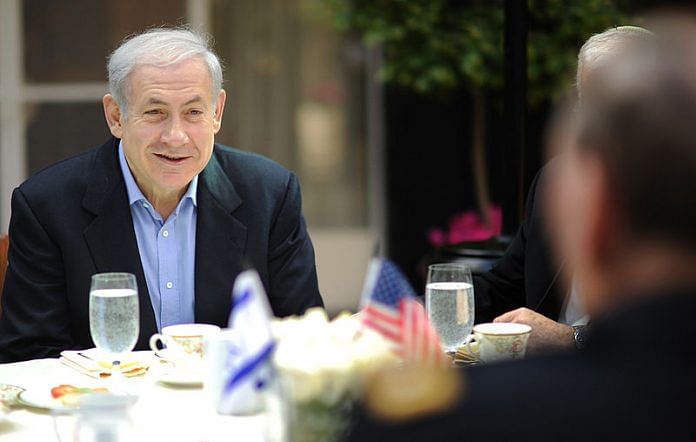Netanyahu is in deep mess
Benjamin Netanyahu hasn’t himself been accused in the so-called submarine affair – purportedly Israel’s gravest corruption scandal in history. But that must be little consolation for the prime minister whose personal lawyer, the man he appointed as national security adviser, and former chief of staff has been arrested in connection with the case. There’s a chance Netanyahu didn’t know of David Sharan’s connection with the case. But then he should have, his critics say.
The case, which entails profitable contracts with a German shipping company in exchange of submarines and new missile ships, has brought to light not just the debilitating levels of corruption in the administration, but also concerns over its bearing on national security and the military’s integrity. As for Netanyahu specifically, his problems don’t seem to see an end. A court order just made him reveal the frequency of his telephone conversations with the former editor of an Israeli news media, after reporter’s petition made accusations of paid news against the prime minister.
Pyongyang university kicks off new session without its American staff
North Korean universities seldom make news. But the strained relations between Pyongyang and Washington have dragged the isolated country’s only foreign-funded private university to news. The university, which relies on 60-80 volunteer professors, half of whom are American, from abroad, has to work a way around the American travel ban which prohibits Americans from travelling to North Korea. But for now, the university, both of whose founders are American passport-holders, has begun a fresh semester without its American volunteers.
Depsite the ban, which was announced in July, the US had said it would consider a one-time, special-validation visa for journalists, humanitarian workers, Red Cross officials and those travelling to Pyongyang in “the national interest.” While the university is recruiting more non-American volunteers to teach there, it will also try to get the American volunteers the special visa.
Russia’s frail relationship with human rights becomes frailer
Russia might just end up destroying a judicial bridge linking it to Europe since it joined the Council of Europe in 1996, making its frail relationship with human rights even frailer. After Russia annexed Crimea in 2014, the Council promptly revoked its voting rights. Now with the election of judges and top officials in the Council soon approaching, Moscow might just crash out of the group if it is continued to be excluded from the voting process.
“If Russia is forced to leave, then 140 million people will be deprived of going to the highest court in Europe,” the secretary general of the Council said. Far from making any attempt to reverse its annexation of Crimea, Moscow continues to block the Council’s human rights commissioner to the region. Yet, it may not be wise to let it go. “We have to think of the following: Will Europe be better off, safer, with Russia on its own, without being part of the judicial system of Europe?” he said.
EU needs an urgent diversity overhaul
While at least 7 percent of the European Union’s population belong to the religious and ethnic minorities, it is awfully rare to run into a non-White civil servant in the EU – and it is something European institutions need to promptly ponder over. But somehow the Union remains somewhat reluctant to take any cognizance of this, thereby only contributing “to Brussels’ image as an exclusive club out of touch with its citizens”.
It’s not as though the EU is entirely unaware of the diversity problem. Only last month, it published a strategy to ensure that more women, disabled individuals and those from the LGBT community join the club. But tellingly, it kept absolutely quiet over the question of race, religion and ethnicity.
America’s middle-class is flourishing, say Americans themselves
Of late, news emanating from the US has seldom been encouraging. But in the midst of the growing disillusionment, there is some evidence of optimism, it seems. According to Americans themselves, the American middle class is expanding. And while it may have been one of America’s most underreported stories this year, Americans seemed to have finally moved beyond the fears of the Great Recession.
According to a survey by Gallup, 62 percent Americans identify themselves as the constituting the middle class, while only 36 percent classify themselves as working class or lower class. Go back to 2015, and one finds the US was evenly split between those in the middle and upper-middle classes (51 percent) and those in the working and lower classes (48 percent). So is it good news for Donald Trump? Not really. While optimism as far as self-identification to a more favourable social class may have increased, the president’s approval ratings remain unchanged (read low).



